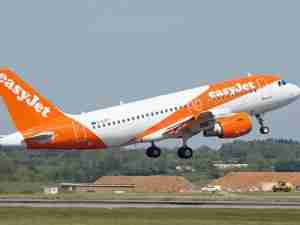Japan bidders tepid about Kansai airport, casting doubt on Abe asset sales
By: Reuters | May 20 2015 at 02:41 PM | Air Cargo
Days before the sale of Kansai International Airport closes, just one Japanese company has pledged to bid, casting doubt on a marquee project in Prime Minister Shinzo Abe's effort to involve private companies in major infrastructure projects.
The 10-month initial bidding for the rights to run Japan's fifth-busiest airport is meant to start a wave of public-private partnerships to attract investment to Japan, chip away at the government's massive debt and introduce more market rigor to infrastructure management.
But with bids closing Friday for the $18 billion concession, the first major attempt to auction the rights for Japan's cash-generating infrastructure, only financial services firm Orix Corp has declared it will bid, teaming up with France's Vinci SA.
Three qualified Japanese bidders have pulled out and several are sounding cautious about the deal, which is to be followed by auctions to operate smaller airports, highways and water utilities.
The deal could go through even with a single Orix bid, said a spokesman for the government-run New Kansai International Airport Co, but this would be an embarrassment for a centerpiece project in Abe's promise to triple private money in infrastructure projects to 12 trillion yen over the next decade.
Hurdles
Potential bidders have baulked at the 2.2 trillion yen price tag for debt-laden Kansai, which is six times that of a comparable 2013 deal for airports in Portugal.
The Kansai sale, which includes the operations of smaller Osaka International Airport nearby for 45 years, will also saddle investors with nearly $10 billion in debt run up after planners found the airport's artificial island was sinking into Osaka Bay and had to be shored up with a massive retaining wall.
Nippon Life Insurance Co [NPNLI.UL], said it will not bid, citing its limited expertise in managing commercial facilities, but may consider investing in the project. Mitsubishi Estate Co and Daiwa House Industry Co have dropped out.
Railway operator Tokyu Corp is mulling a bid, but "considering the size of our balance sheet, as CFO of this company I think it could be risky for us to lead this project," chief financial officer Masato Tomoe told reporters. "There are many uncertainties in this business."
Mitsubishi Corp CFO Shuma Uchino said last week there is no change since he said in February that the company had become cautious about bidding as the conditions were "very challenging".
Sumitomo Realty & Development Co spokesman Koichi Wakayama said the company, another potential suitor, is carefully considering a bid. Marubeni Corp CEO Fumiya Kokubu said last week the trading house has not decided whether to participate while officials at Mitsui Fudosan Co declined to comment.
Facing investor resistance, New Kansai was forced in February to extend the deadline on the project, saying it was ready to ease some conditions if requested. But a spokesman last week said there have been no major changes.
Transport and finance ministry officials involved in the project have said cutting the price was not an option. Officials defend the price given the growing number of overseas visitors and the airport's capacity to add flights and operate around the clock.










